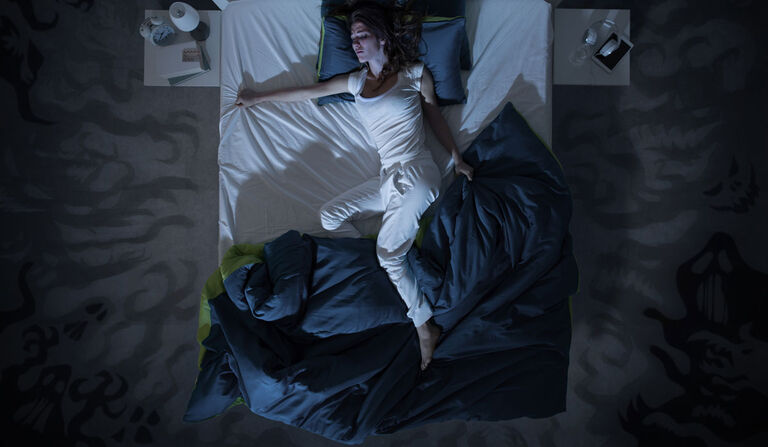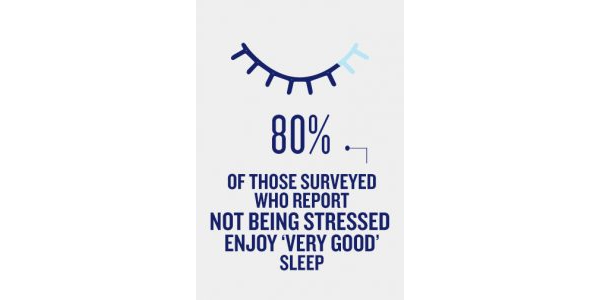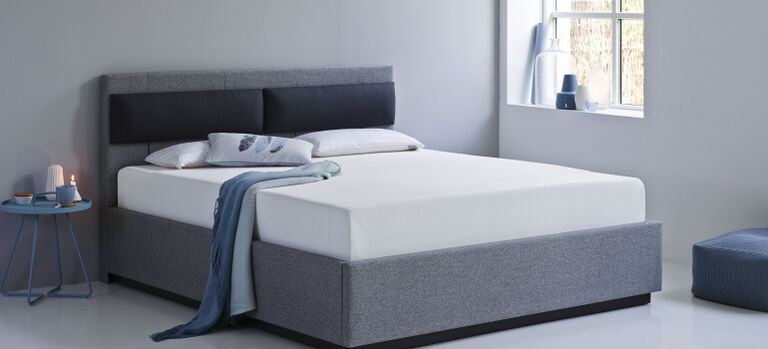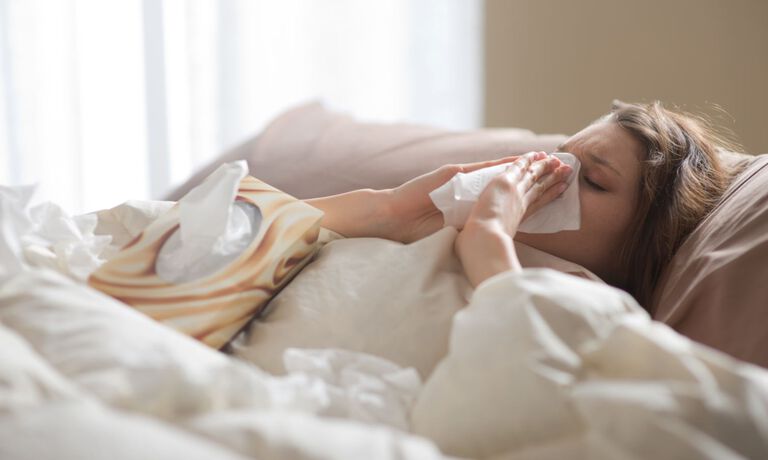HOW DO NIGHT SWEATS IMPACT SLEEP?
NIGHT SWEATS: EXCESSIVE SWEAT DURING SLEEP
Night sweats can be defined as excessive sweating at night and are characterized by wet sheets and sleepwear upon waking. Waking up in a sweat is the symptom of this sleep disorder, and while it is often a benign disorder, with the causes of night sweats are commonly linked to a hormonal imbalance. However, they can also be a sign of a more serious health problem. In any case, if you have been suffering from night sweats, you should consult your doctor as excessive sweating affects your well-being and quality of sleep.
WHAT ARE NIGHT SWEATS?
When you have night sweats, you sweat profusely and suddenly during the night. These are ‘hot flashes’ that go so far as to soak the sheets and sleepwear. How can you recognize night sweats from profuse but ‘normal’ sweating? The difficulty is that this symptom can appear temporarily or settle over time. It is the suddenness, the excessive and repeated nature that should be cause for concern. Night sweats, or hyperhidrosis, can be associated with other sleep disorders, meaning there are many causes of night sweats and can affect everyone.
WHO IS AFFECTED BY NIGHT SWEATS?
Night sweats are a common disorder, with 35% of sleepers between the ages of 20 and 65 affected by it, at some point in their life.
As hormonal imbalance is one of the main causes, men and women are affected by this disorder differently.
In women, night sweats may have been caused by a decrease in estrogen levels. The most significant hormonal fluctuations are observed during pregnancy or during menopause. Contraception also influences hormone levels and can lead to night sweats.
And in men, excess testosterone can lead to night sweats.
Beyond the hormonal imbalances that impact men and women during their lifetime, there are other causes of night sweats, which can be a symptom of an underlying issue.
THE MAIN CAUSES OF NIGHT SWEATS
The cause of hyperhidrosis is the stimulation of the sympathetic nervous system, which can be brought on by many causes. Apart from hormonal imbalances affecting men and women distinctly, other sleep disorders and pathologies can be the cause of night sweats. More on this below.
CAUSES RELATED TO SLEEP DISORDERS
Restless legs syndrome (periodic nocturnal movements): repeated movements of the legs during the night.
- Sleep apnea: Sleep disorder characterized by involuntary respiratory arrests during sleep.
- Nightmares: Stopped by waking up and are often accompanied by heavy perspiration.
OTHER CAUSES
- Hyperthyroidism: Hormonal disorder common to women and men and characterized by abnormally high production of hormones by the thyroid gland.
- A disorder of the hypothalamus: An area ofthe brain responsible for regulating body temperature.
- Gastroesophageal reflux: Also known as acid reflux, when part of the contents of the stomach reaches the esophagus.
- A pleurisy: An inflammation of the membrane covering the lungs.
- Acute or chronic infections: Such as tuberculosis, osteomyelitis, infective endocarditis, HIV, hepatitis C.
- Taking certain medications.
- Certain cancers: Especially in the case of Hodgkin's lymphoma or non-Hodgkin's lymphoma.
Like any sleep disorder, the causes can vary from mild to serious, but there’s no need to assume the worst, because in most cases night sweats can be easily treated. Especially since in some cases, the origin of night sweats is idiopathic, without any pathology or disorder being detected.
THE CONSEQUENCES AND SOLUTIONS OF NIGHT SWEATS
Night sweats impact quality of sleep and can lead to a lack of sleep. The short-term consequences of this are:
- Concentration and attention disorders
- Memory problems
- Excessive fatigue and daytime sleepiness
- Mood disorders with difficulty managing emotions
- An altered reaction time therefore an increased risk of accident
- A loss of efficiency
- Increased pain sensitivity
The consequences of a chronic long-term sleep deficit are more serious:
- Weight gain and obesity
- Depression
- Decreased immune defenses
- Increased risk of cardiovascular disease
- Increased risk of diabetes
- Skin ageing
This is why it is important to consult your doctor if night sweats are ongoing. Solutions and treatments exist to fight against excessive nocturnal sweating and preserve your sleep.
NIGHT SWEAT TREATMENTS
A medical examination to determine the causes of night sweats is necessary when deciding on a treatment plan. At the time of the consultation, the doctor will carry out a meticulous investigation to determine when the night sweats started and possible causes. A clinical examination accompanied by a blood test can complete the examination.
Treatments will depend on the causes and can vary. If there is a suspicion of sleep apnea, a complete sleep study may be carried out. If night sweats are due to hormonal imbalance, such as menopause, hormone replacement therapy will be recommended. If it is a deregulation of the thyroid, the health professional may prescribe drugs that block the production of thyroid hormones.
Finally, to improve your comfort, TEMPUR mattresses are equipped with CoolTouch™ technology to absorb excess heat. The QuickRefresh™ cover on our mattresses is easily removable and machine washable. These technologies will allow you to stay cool when you sleep.
Feel it for yourself
Find a TEMPUR store or Stockist and try out our range of mattresses for yourself

GET THE LATEST NEWS & OFFERS
Sign up here for information and offers regarding out products and services from TEMPUR AU. For details on how your data is used and stored, see our Privacy Policy




